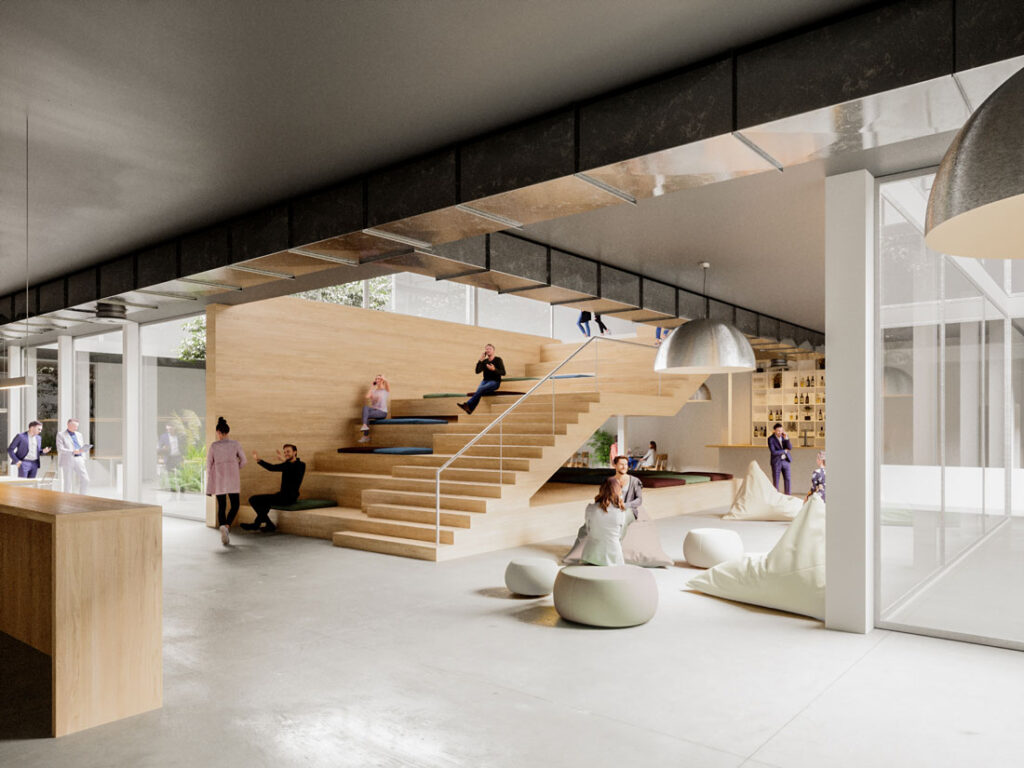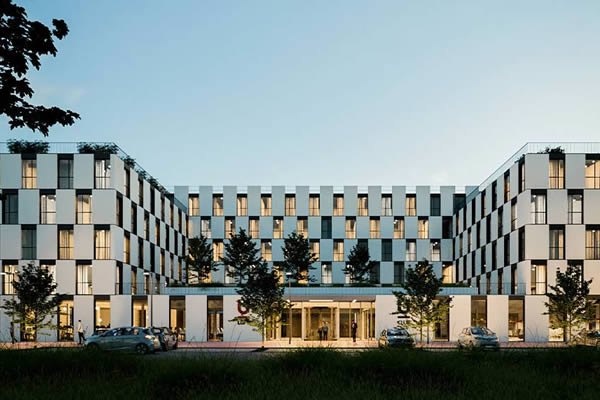Student residence of 144 units

Reference sheet
Contracting authority
Private
Program
Student residence of 144 units:
96 studios (15 m²), 40 two-bedroom units (46 m²),
8 four-bedroom flats of 104 m²),
roof terrace, cafeteria, classrooms,
coworking space, start-up incubator, amphitheatre and gym
Cost
10.2 M€ HT
Ongoing study



